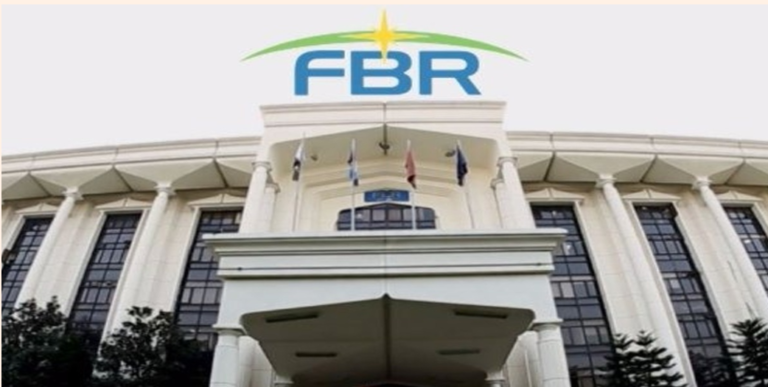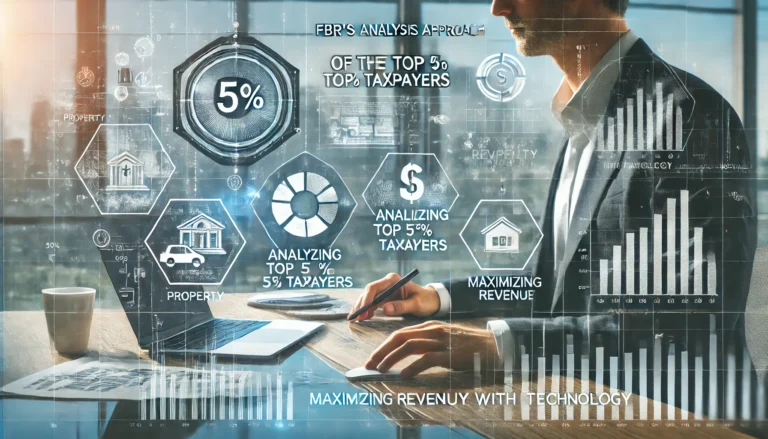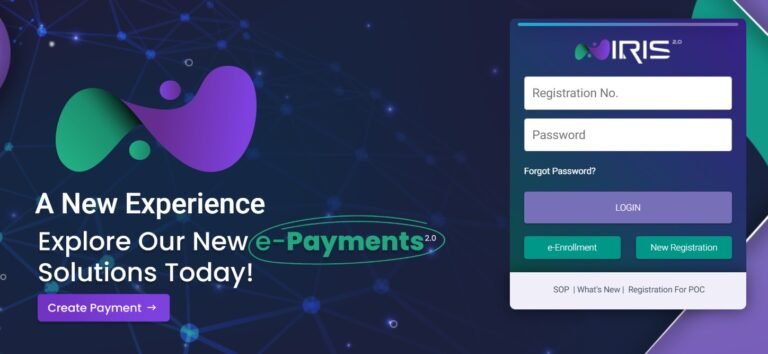Tax Law (Amendment) Bill, 2024: stricter compliance for non-filers, restrictions on property and bank transactions, real-time tax reporting, and enhanced enforcement measures to curb tax evasion
1. Title and Commencement
- What it says: This law is called the Tax Laws (Amendment) Act, 2024. It takes effect immediately unless stated otherwise.
- What it means: The law applies as soon as it is officially approved.
2. Amendments to the Sales Tax Act, 1990
- Input Tax Adjustments (Section 8B):
- The FBR can use automated systems to adjust or defer tax claims by businesses.
- Businesses can challenge these decisions by submitting a complaint to the Commissioner, who must decide within 60 days.
- Bank Account Restrictions (New Section 14AC):
- If someone doesn’t register for tax, the FBR can freeze their bank accounts.
- Once they register, the restriction will be removed within two working days.
- If someone disagrees, they can appeal within 30 days.
- Property Transfer Restrictions (New Section 14AD):
- The FBR can stop the transfer of property for people who haven’t registered for tax.
- This restriction will also be lifted two days after they register.
- Other Actions for Non-Registration (New Section 14AE):
- The FBR can:
- Seal business premises.
- Seize movable assets.
- Appoint a manager (receiver) to handle a business.
- Public notices must be issued before taking these steps, and people will be given a chance to explain themselves.
- The FBR can:
- Appointment of Experts and Auditors (New Section 32B):
- FBR can hire specialists or auditors to assist in audits, investigations, or valuations.
3. Amendments to Islamabad Capital Territory (Tax on Services) Ordinance, 2001
- Real-Time Integration:
- Service providers (e.g., restaurants, salons) in Islamabad must link their business systems with FBR for real-time tax reporting.
4. Amendments to the Income Tax Ordinance, 2001
- Restrictions on Transactions by Non-Filers (New Section 114C):
- Unregistered individuals cannot:
- Buy or register vehicles (except motorcycles, rickshaws, and small pickups).
- Transfer high-value properties.
- Invest in securities like mutual funds.
- Make large withdrawals from bank accounts.
- These restrictions are removed once they register and declare their sources of income.
- Unregistered individuals cannot:
- Sharing of Information with Banks (New Section 175AA):
- FBR will share taxpayer details (like income and account data) with banks.
- Banks must report discrepancies between their data and FBR’s records.
- Definition of Eligible/Ineligible Persons:
- Eligible Person: Someone who files tax returns and has enough declared income/assets.
- Ineligible Person: Someone who doesn’t meet these requirements.
5. Amendments to the Federal Excise Act, 2005
- Tracking Counterfeit Goods:
- Businesses must use electronic stamps or barcodes to monitor taxable goods.
- Counterfeit goods will be confiscated.
- Additional Powers for Officers:
- FBR can assign officers to enforce these new rules and take action against counterfeit goods.
Why is This Important?
- To make sure everyone pays taxes based on their income and spending.
- To modernize tax enforcement using technology.
- To increase government revenue for economic growth.
- To stop tax evasion by imposing restrictions on non-compliant individuals and businesses.
ٹیکس قوانین (ترمیمی) بل، 2024 کا آسان اردو میں سیکشن وار خلاصہ
2. سیلز ٹیکس ایکٹ، 1990 میں ترامیم
ان پٹ ٹیکس ایڈجسٹمنٹ (سیکشن 8B):
ایف بی آر خودکار نظام کے ذریعے کاروبار کے ٹیکس کلیم کو ایڈجسٹ یا ملتوی کر سکتا ہے۔
کاروبار ان فیصلوں کے خلاف شکایت کر سکتے ہیں اور کمشنر کو 60 دن کے اندر فیصلہ دینا ہوگا۔
بینک اکاؤنٹس پر پابندیاں (نیا سیکشن 14AC):
اگر کوئی شخص ٹیکس کے لیے رجسٹر نہیں ہوتا تو ایف بی آر ان کے بینک اکاؤنٹس منجمد کر سکتا ہے۔
رجسٹریشن کے بعد یہ پابندی دو دن کے اندر ختم کر دی جائے گی۔
اگر کوئی شخص فیصلے سے اختلاف کرے تو 30 دن کے اندر اپیل کر سکتا ہے۔
جائیداد کی منتقلی پر پابندی (نیا سیکشن 14AD):
ایف بی آر غیر رجسٹرڈ افراد کی جائیداد کی منتقلی روک سکتا ہے۔
رجسٹریشن کے دو دن بعد یہ پابندی ہٹا دی جائے گی۔
رجسٹریشن نہ ہونے پر دیگر اقدامات (نیا سیکشن 14AE):
ایف بی آر درج ذیل اقدامات لے سکتا ہے:
کاروباری جگہ سیل کرنا۔
منقولہ اثاثے ضبط کرنا۔
کاروبار کے انتظام کے لیے مینیجر (ریسیور) تعینات کرنا۔
ان اقدامات سے پہلے عوامی نوٹس جاری کرنا اور وضاحت کا موقع دینا ضروری ہے۔
ماہرین اور آڈیٹرز کی تقرری (نیا سیکشن 32B):
ایف بی آر آڈٹ، تحقیقات یا دیگر امور میں مدد کے لیے ماہرین یا آڈیٹرز کی خدمات حاصل کر سکتا ہے۔
3. اسلام آباد کیپیٹل ٹیریٹری (خدمات پر ٹیکس) آرڈیننس، 2001 میں ترامیم
ریئل ٹائم انضمام:
اسلام آباد کے سروس پرووائیڈرز (مثلاً ریستوران، بیوٹی سیلون) کو اپنے کاروبار کو ایف بی آر کے کمپیوٹرائزڈ سسٹم کے ساتھ جوڑنا ہوگا تاکہ ٹیکس کی رپورٹنگ ریئل ٹائم میں کی جا سکے۔
4. انکم ٹیکس آرڈیننس، 2001 میں ترامیم
نان فائلرز کے لین دین پر پابندیاں (نیا سیکشن 114C):
غیر رجسٹرڈ افراد درج ذیل کام نہیں کر سکتے:
گاڑی خریدنا یا رجسٹر کرانا (سوائے موٹر سائیکل، رکشہ اور چھوٹے پک اپ کے)۔
زیادہ قیمت والی جائیداد کی منتقلی۔
میوچل فنڈز یا دیگر سیکیورٹیز میں سرمایہ کاری۔
بینک اکاؤنٹس سے بڑی رقم نکالنا۔
یہ پابندیاں رجسٹریشن اور آمدنی کے ذرائع ظاہر کرنے کے بعد ہٹا دی جائیں گی۔
بینکوں کے ساتھ معلومات کا تبادلہ (نیا سیکشن 175AA):
ایف بی آر بینکوں کے ساتھ ٹیکس دہندگان کی معلومات (آمدنی، اکاؤنٹس وغیرہ) کا تبادلہ کرے گا۔
بینک ایف بی آر کے ریکارڈ کے ساتھ تضاد کی صورت میں اکاؤنٹ کی تفصیلات فراہم کریں گے۔
اہل اور غیر اہل افراد کی تعریف:
اہل افراد: وہ افراد جو ٹیکس ریٹرن جمع کراتے ہیں اور ان کے پاس کافی اثاثے ہوتے ہیں۔
غیر اہل افراد: وہ افراد جو ان شرائط پر پورا نہیں اترتے۔
5. فیڈرل ایکسائز ایکٹ، 2005 میں ترامیم
جعلی اشیاء کی مانیٹرنگ:
کاروبار کو الیکٹرانک اسٹیمپ یا بارکوڈ استعمال کرنا ہوں گے تاکہ ٹیکس اشیاء کی مانیٹرنگ کی جا سکے۔
جعلی اشیاء ضبط کر لی جائیں گی۔
افسران کو اضافی اختیارات:
ایف بی آر افسران کو ان قوانین پر عملدرآمد کرنے اور جعلی اشیاء کے خلاف کارروائی کرنے کا اختیار دے سکتا ہے۔
اس قانون کا مقصد
یہ یقینی بنانا کہ لوگ اپنی آمدنی اور اخراجات کے مطابق ٹیکس ادا کریں۔
ٹیکنالوجی کے ذریعے ٹیکس کے نفاذ کو جدید بنانا۔
حکومتی آمدنی میں اضافہ اور معیشت کی ترقی کے لیے وسائل پیدا کرنا۔
غیر رجسٹرڈ افراد اور کاروبار کے خلاف سخت اقدامات کے ذریعے ٹیکس چوری کو روکنا۔




